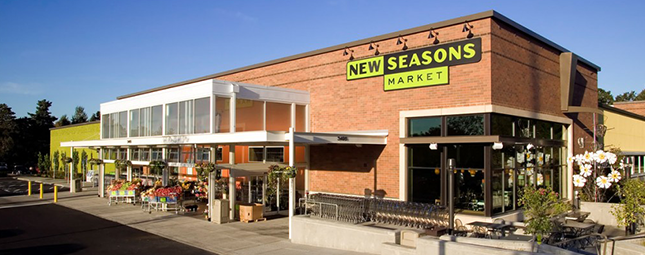
In five months using Leanpath, New Seasons Market's Central Kitchen has prevented over 46 thousand pounds of food from being wasted, a reduction of 22 percent in its waste. High staff engagement and strong data analysis has produced many positive changes in the team, and a new level of gratification to their work.
New Seasons Market is a neighborhood grocer based in Portland, Oregon, with 21 community stores along the West Coast. It operates a central kitchen that produces 20 thousand pounds of breads, pastry items and prepared foods daily. The first grocery store in the world to achieve B Corporation certification, New Seasons has always been focused on lessening its impact on the planet. It had been tracking food waste manually before automating the process with Leanpath.
“We knew tracking food waste was an opportunity for the business and really important for our emissions-reduction goals, but previously we hadn't been able to engage staff or quantify the impact,” says Athena Petty, New Seasons' Sustainability Program Manager. “The way Leanpath tracks food waste and engages people is different. There is so much nuance with behavior change, understanding what gets people excited to engage in a process like this. That’s what Leanpath has delivered. That’s the reason we’re seeing such success.”
“The Leanpath system has been easier for our staff to buy in to, use and engage with than other systems we've used before,” explains Leah Griffin, New Seasons' Central Kitchen Operations Manager.
Targeting Romaine lettuce waste
With strong staff engagement in the tracking process came complete data on the kitchen’s food waste--and a surprise. “Food waste was higher than what we expected,” says Griffin. “That was immediately enlightening.”
One of the high waste items the Leanpath data identified was Romaine lettuce waste from spoilage and trimmings. Griffin and her team took the data on the weight and cost of the Romaine waste and convened staff from purchasing and operations. Prep staff were retrained on Romaine production to ensure full usage of the product. New quality checks were implemented at receiving. They tracked the results of these efforts and came to a realization: the root of the problem was the product from the supplier.
With a new supplier delivering better quality Romaine, the kitchen is spending less labor hours prepping because they are getting higher yield per head of lettuce, and they are spending less time in receiving because they have to order less.
Leveraging Leanpath reports
Engaged New Seasons’ staff led to complete, actionable data. That data led to more than food waste reductions: Leanpath’s various reporting tools allowed Griffin and Petty to tailor data to various audiences in the company.
“The fact that we’ve been able to bring thought leaders and decision makers together to make innovative choices based on what we’ve learned through Leanpath, it’s been unique,” says Petty. “We’re having conversations we weren’t having before.”
The whole process has added a new layer of gratification to Griffin’s work. “I can hang my hat on the fact that we have reduced waste,” she says, “and that’s not only great because it means something for our bottom line, but that there’s that much less of a negative environmental impact in the processing of that food. There’s more food out there for someone else to have because we didn’t need to bring it into this facility. It’s the intersection of all those different things just by doing my job.”
Learn how foodservice operators around the world use Leanpath to prevent food waste.

